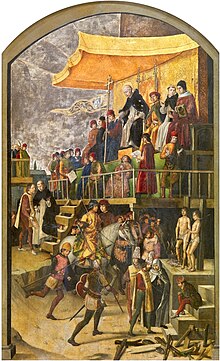
The CRTC recently reproved Radio Canada for discussing Les Negres Blancs d’Amerique, an anti-capitalist and anti-English tract of the 1960s. Apparently Radio Canada should not have mentioned the title even in the French language. Only two Commissioners dissented, pointing out that the Constitutional right to free speech might be involved, a point totally ignored by the other Commissioners.
The National Post printed my article about the issue.
The recent contretemps between the Canadian Radio-television and Telecommunications Commission and Radio-Canada about the use of the n-word during a radio segment reminds us that the CRTC is all about the control of speech. Usually, the commission farms out its censorship to a specialized agency, but this time it did the dirty work itself. Two commissioners dissented, arguing that the CRTC was engaging in censorship without regard to the right to freedom of expression set forth in the Constitution.
As a result of the controversy, more people are becoming aware that they are subject to CRTC censorship.
Back in May 2021, the Canadian chapter of the Internet Society wrote in Le Devoir that Bill C-10, now repackaged as C-11, the Online Streaming Act, vastly expanded the range of “broadcasting” and hence what would need government permission. You can only “broadcast” by virtue of a licence or in conformity to regulation. That is the law: to expand the definition of “broadcasting” is to expand government regulation.
C-11 makes user-generated videos or podcasts — virtually anything involving sound or video — subject to CRTC regulation. Indeed it is a wonder the government stopped there: why not regulate email as well? Nor does the regulation of speech stop at Canada’s borders. Bill C-11 permits the CRTC to exercise global authority over “programs” in any language, from any source.
Defenders of C-11 have argued that nothing the bill allows for would threaten freedom of speech because a clause in the act says so. Which is like the Holy Office of the Inquisition saying it is guided by respect for diversity of opinion. The commission’s decision on the use of the n-word has just proven that statement to be false. The CRTC is all about control: who gets to speak, within what limits, how often, and to what effect. Usually the control is exercised indirectly, but in this case it was overt.
Defenders of Bill C-11 in the TV production community and elsewhere have tried to claim that its opponents are just anglophone bigots fighting against French language television subsidies, or some such rot. No one is concerned with the subsidization of television shows, whether across conventional broadcasting or by internet streaming platforms. Under certain conditions, increasing the flow of money to Canadian TV production is a good idea — but that is not the issue here.
C-11 vastly expands federal jurisdiction over speech. It does so while wrapping itself in the flag of “Canadian content,” which thrives on the internet without permission, subsidy, or concern for official Canadian culture. C-11 would actually harm the interests of Canadian YouTubers, TikTok users and other creators.
The danger of federal overreach on speech control is the issue here. User-generated content does not require CRTC regulation. Despite all denials, despite all pretences that it does no such thing, C-11 is directly aimed at user-generated content, and in expanding state authority over it. The CRTC’s recent decision regarding Radio-Canada is a reminder that we have a government censor. Bill C-11 tells us its jurisdiction is about to expand by orders of magnitude. It’s time to wake up.